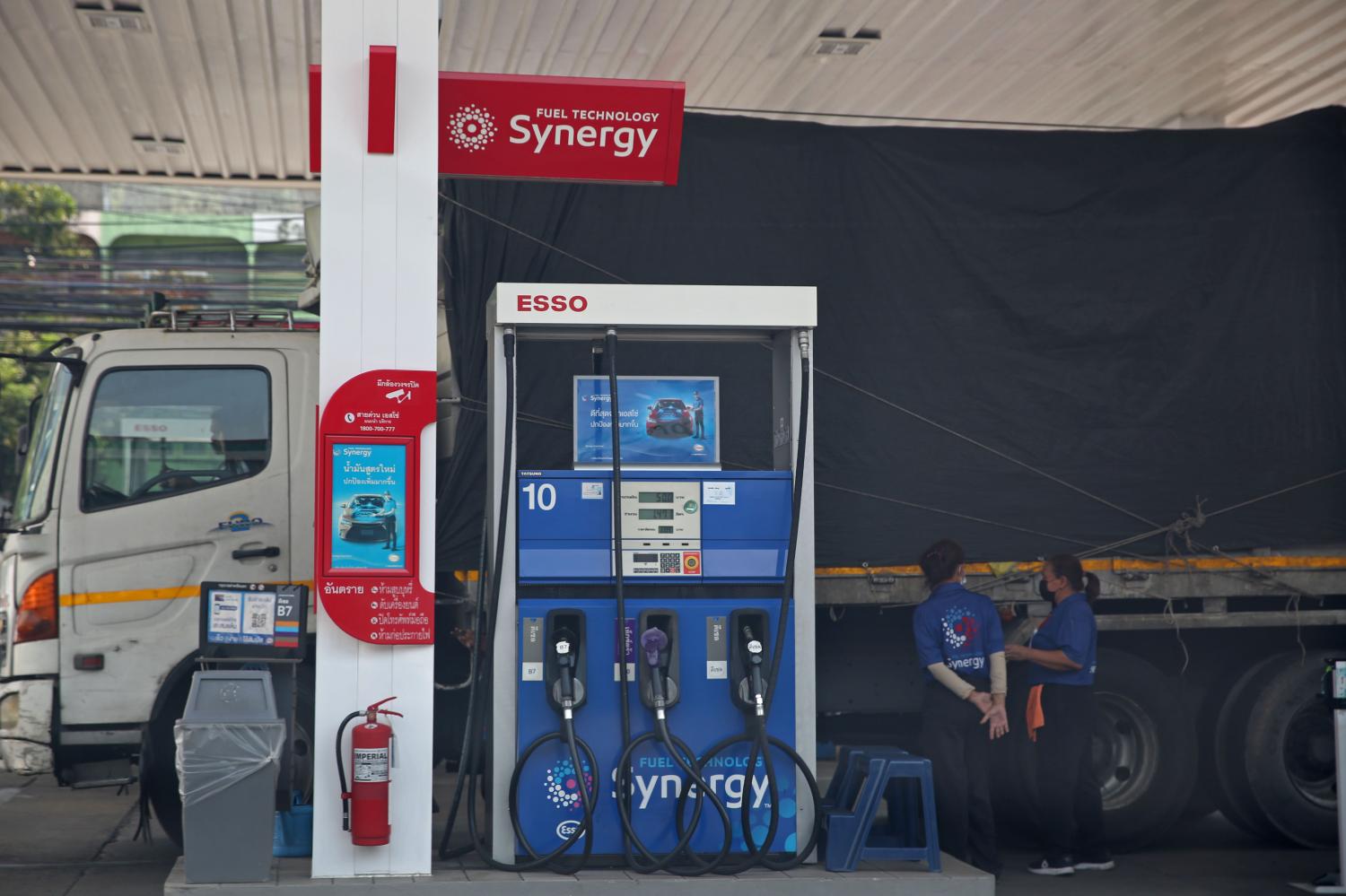
The Land Transport Federation of Thailand (LTFT) has called on the government to further cut diesel excise tax and abandon sales of diesel, blended with expensive palm oil-derived methyl ester, for six months to better control domestic diesel prices during the global oil price surge.
The Energy Policy Administration Committee earlier decided to reduce the proportion of methyl ester to 5%, down from 7%, as prices of methyl ester went up. Biodiesel 5, known as B5 for a mix of diesel and 5% methyl ester, will be sold as a single-grade biodiesel until the end of March.
However, the LTFT wants authorities to have petrol stations sell only "pure diesel" without methyl ester blend for six months.
Prices of domestic crude palm oil are currently more expensive than the global market prices, said the federation.
Taking methyl ester out and cutting more diesel excise tax, along with adjusting domestic oil price structure, are expected to help the government reduce diesel prices by 2-3 baht a litre from 30 baht a litre, said Thongyoo Kongkhan, advisory chairman of the LTFT.
"There are many ways to cap retail oil prices at lower than 30 baht a litre. The government should consider them if the state Oil Fuel Fund cannot subsidise the prices," he said.
The Oil Fuel Fund Office (Offo) already spent 23 billion baht subidising diesel and liquefied petroleum gas, which is used as cooking gas. It has only 7 billion baht in subsidies remaining and a loan of 10 billion baht, expected to be received soon, to support the fund.
Offo officials expect the fund to be used up in May.
The LTFT also wants the government to consider using money from the Energy Conservation Fund to support its price subsidy programme.
If diesel prices increase beyond 30 baht a litre, businesses, especially goods transport, will be affected, leading to high inflation.
The federation also wants the government to reduce unnecessary expenses, so it has more money to help people.
"The government can't just ask people to save energy. It should also set itself as an example to save money and energy," said Mr Thongyoo.
The LTFT has already adopted an energy-saving programme by truck pooling and using more digital technology for wise energy management.
Truck operators have yet to increase service fees because they are facing strong competition and the increase will lead to higher cost of living, said Mr Thongyoo.







